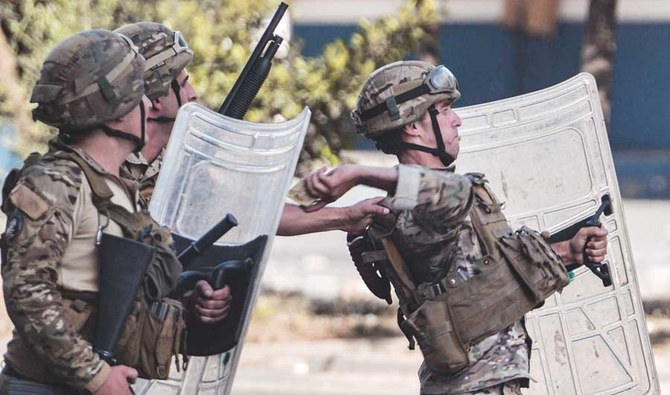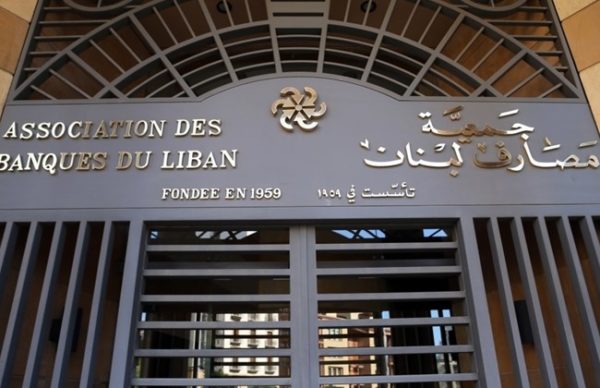
by thenational.ae — The Lebanese army on Monday said it arrested dozens of suspects for vandalism after days of protests against a plunging local currency and the worst economic crisis in decades. Hundreds of protesters clashed with security troops at the weekend across the nation after days of rallies against a ruling class considered to be corrupt and impotent in tackling the worsening crisis. “The total number of arrests made by military intelligence between June 11 and 15 in different Lebanese regions is 36 people for acts of vandalism”, damaging public and private property and attacking troops, the army said. The army launched raids in the northern port of Tripoli, Lebanon’s second city, the official National News Agency reported. For three nights, young men attacked banks and shops and threw rocks at security troops in Tripoli, who responded with rubber bullets and tear gas. Medical services reported dozens of wounded.
Protesters were angered by a steep drop in the Lebanese pound, the rocketing price of food and what they perceive to be the government’s failure to rein in the country’s economic collapse. Relative calm returned on Sunday evening, with protesters holding a peaceful rally in the capital Beirut, while dozens marched to a central square in Tripoli. President Michel Aoun on Monday discussed the protests with the country’s top security body, including ministers and military officials. “Such acts of vandalism will not be allowed after today,” Mr Aoun said after the meeting of the Higher Defence Council. He called for “a wave of arrests, including of those who planned and carried out” such acts, and ordered authorities to increase “pre-emptive” operations to prevent further violence.










![Lebanese security forces intervene in protesters flouted iron and concrete barriers placed around the parliament building as thousands of people gather at Martyrs' Square during a demonstration to protest against economic crisis and high cost of living, on 6 June 2020 in Beirut, Lebanon. [Hussam Chbaro - Anadolu Agency]](https://i2.wp.com/www.middleeastmonitor.com/wp-content/uploads/2020/06/20200606_2_42835424_55703077.jpg?resize=1200%2C800&quality=85&strip=all&ssl=1)



